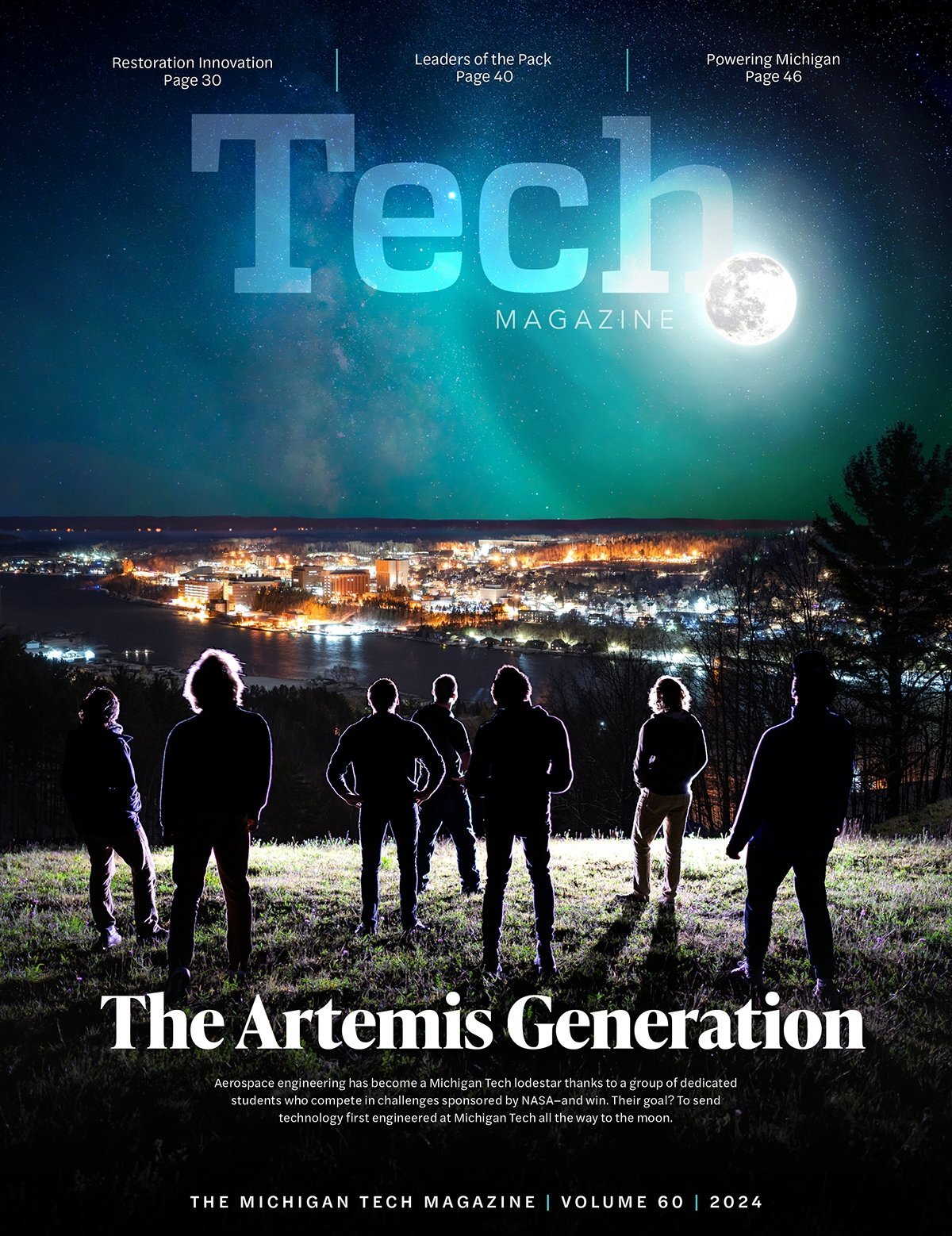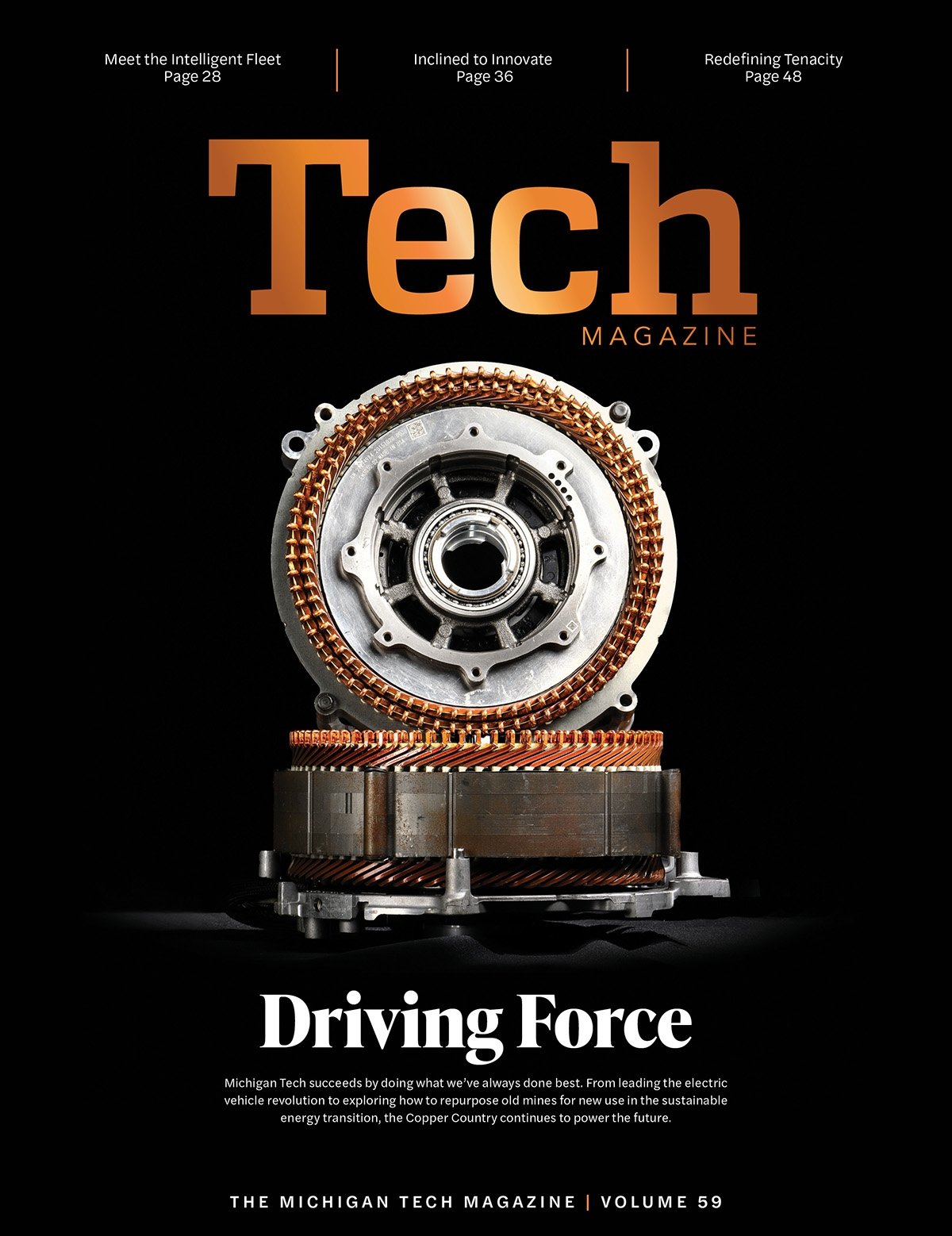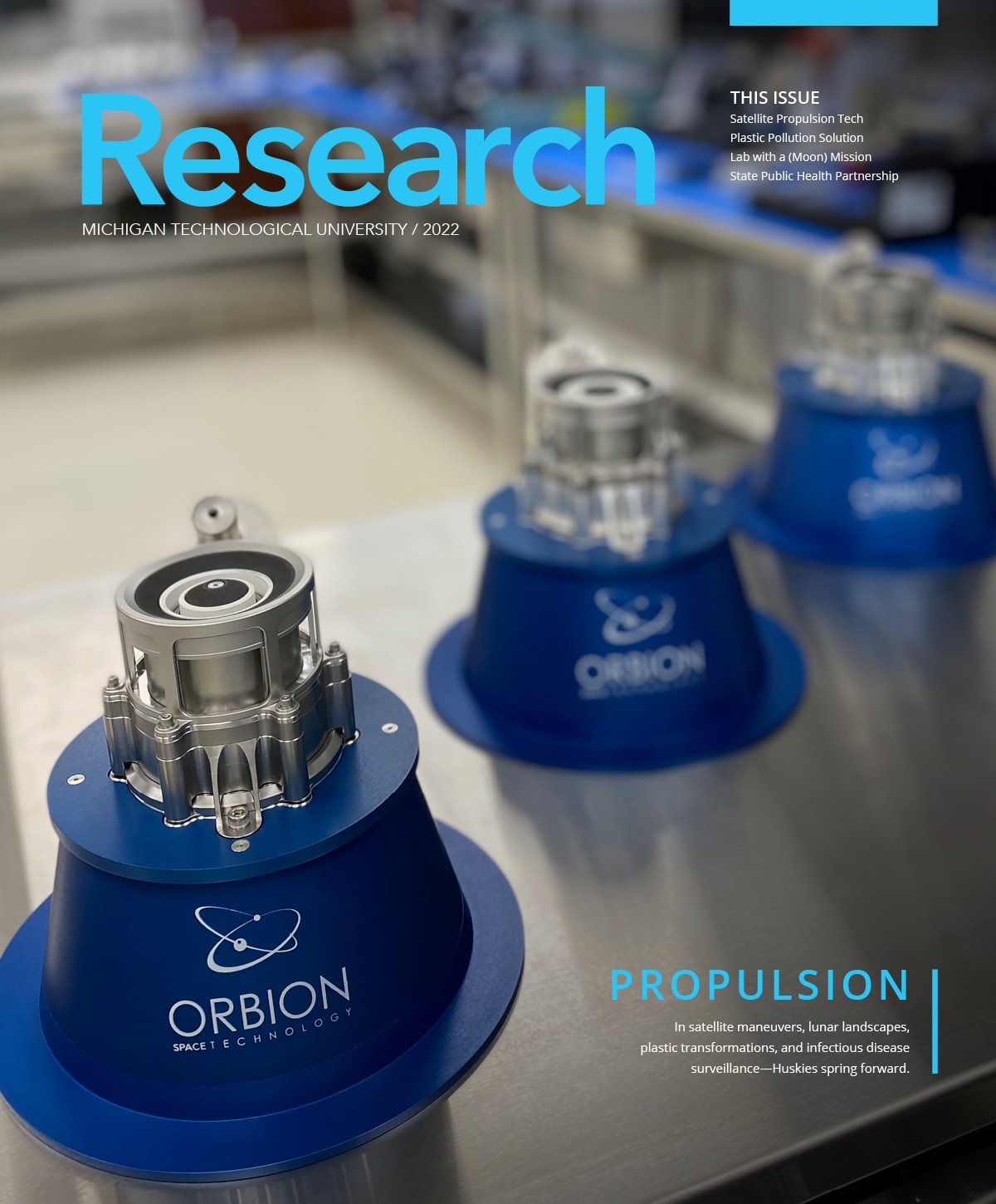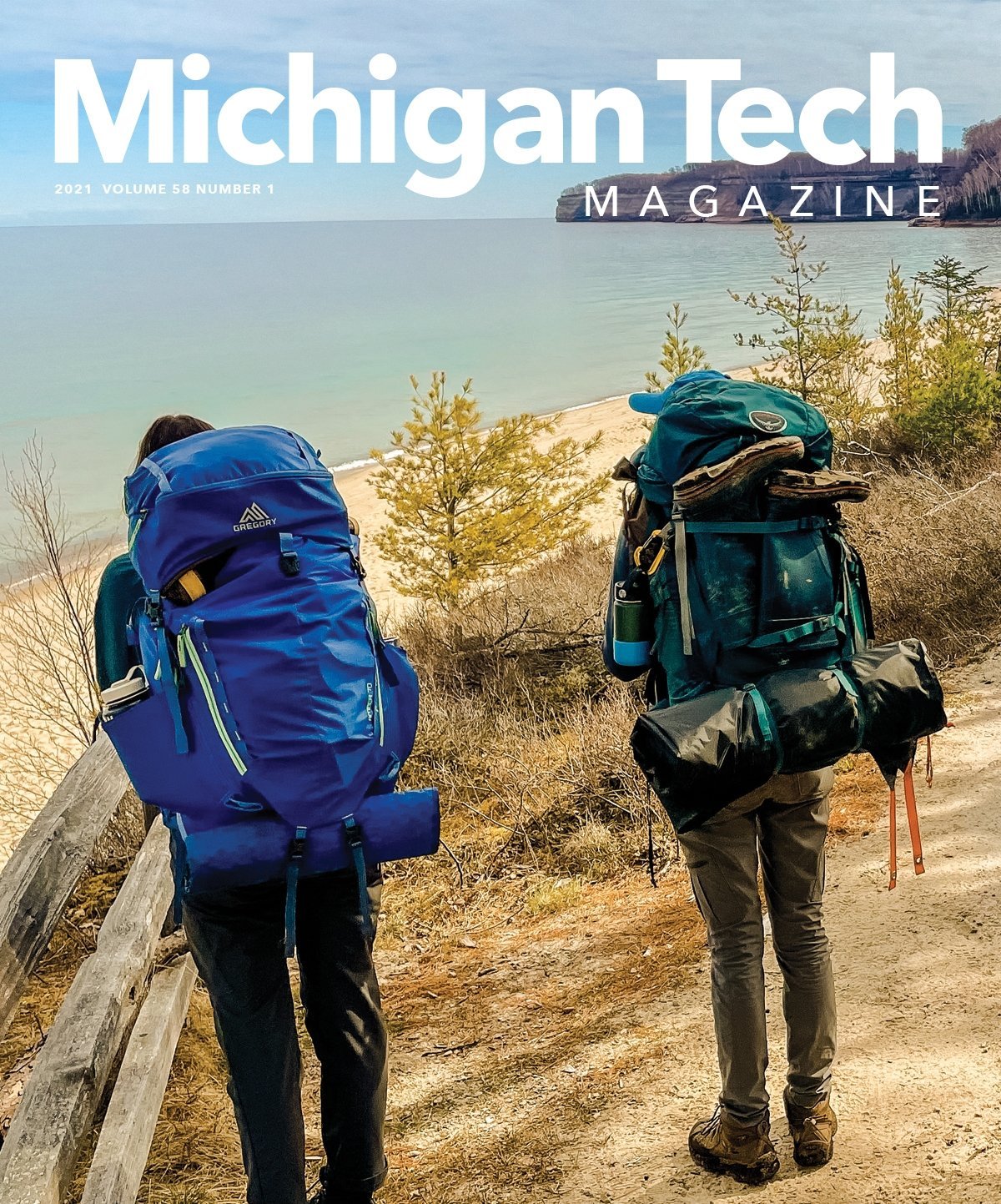-
The Artemis Generation
Michigan Tech's Planetary Surface Technology Development Lab is making a name for itself in the aerospace industry with innovative ideas and engineering prowess. We shadowed the PSTDL team for a year to learn the secrets of their success. It's 5:58 p.m.—two minutes to game time—and the Flat Moon Society is only just beginning to show signs of panic. Team captain Travis Wavrunek '20 '21 '24 scans the snow-covered Walker Lawn anxiously, looking for the team's regular goalie, Chuck Carey '22 '23, who is clearly running late. Other Society members huddle to revise their positioning and strategy. The referee blows the whistle, summoning players to the ice. The expression on Travis's face shifts from anxiety to resignation. Despite being one of the team's top scorers, he will have to fill in as goalie until Chuck arrives.
-
Leaders of the Pack
-
Powering Michigan: Michigan Tech Alumni Lead the Energy Industry Transformation
-
» Interdisciplinary
Research In Focus
-
» Interdisciplinary
Research in Focus: Team Science—Putting People First
-
» Interdisciplinary
Research in Focus: H-STEM Rising
-
Research in Focus: Shedding Snow, Powering UP
-
» Interdisciplinary
Research in Focus: Needles, Haystacks, and Sugar Chains
-
Q&A With Chemical Kim
-
» Interdisciplinary
1400 Townsend Drive
-
Dream Jobs: Chicken Tramper Ultralight Gear
-
Alumni Engagement
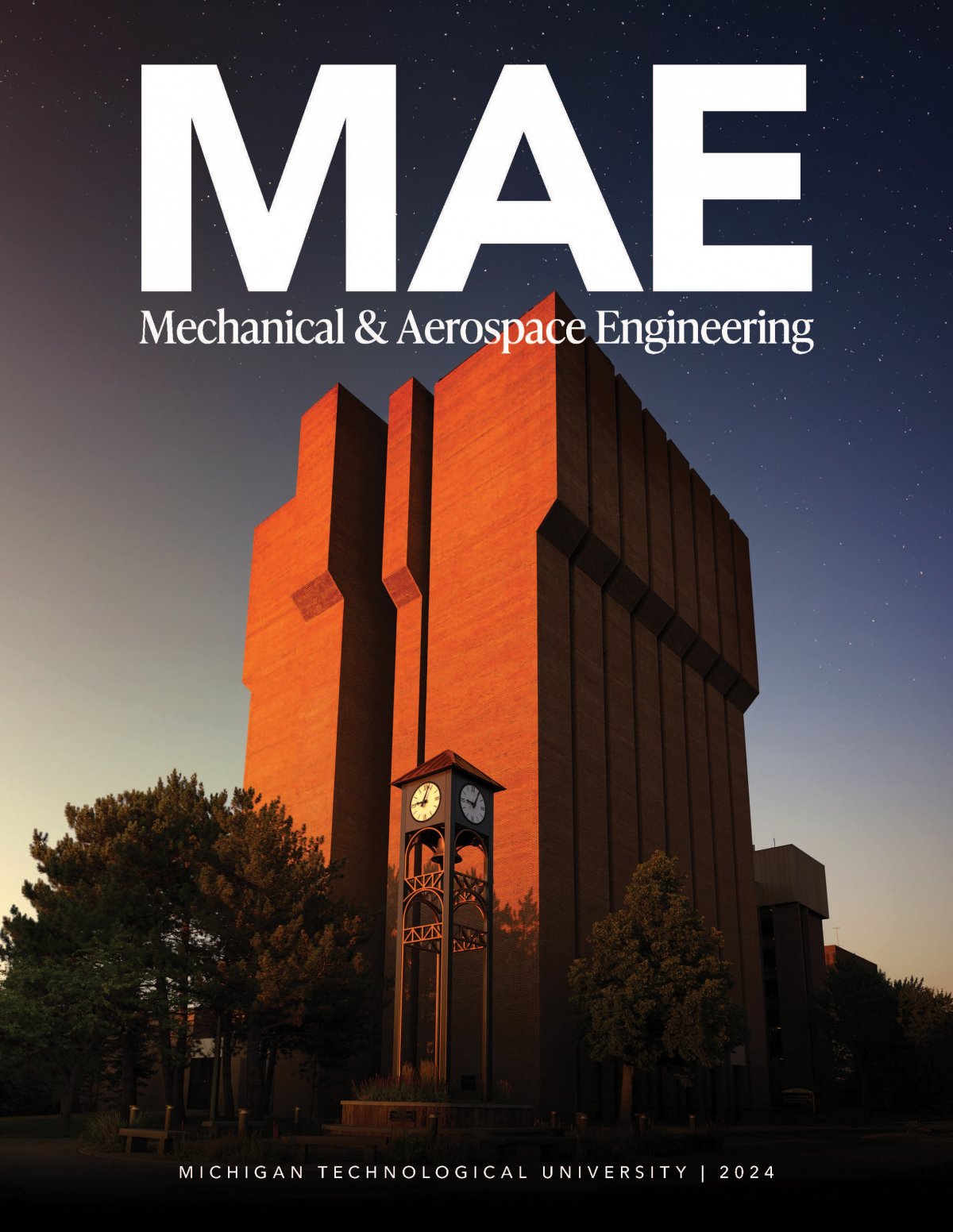
On the cover: The Department of Mechanical Engineering-Engineering Mechanics reaches for new horizons, embracing excellence and growth with a new name that reflects our growth in aerospace engineering research and degree programs.
